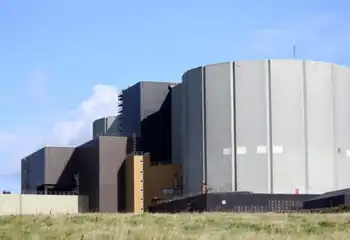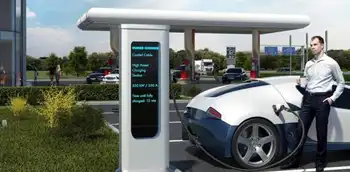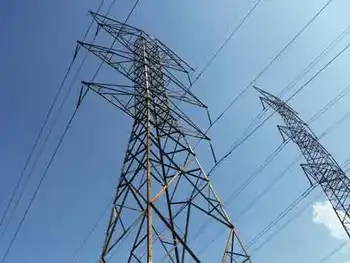Southern utilities look to nuclear solution
WILLIAMSBURG, VIRGINIA - A federal energy bill that has passed through the U.S. House and awaits a vote in the Senate could have a devastating effect on power companies and result in rising electric costs for consumers, a panel of Southern utility officials told 11 Southern governors.
The bill's requirement that utilities generate 20 percent of their power through renewable resources like wind and solar by 2020 or face penalties puts an unfair burden on utilities in the South, where those types of power generation are less effective, the utilities said.
Should the provision survive in the final version of the bill, consumers likely would see a steep rise in their monthly bills in coming years, three Southern utility chief executives and a university professor told the governors, gathered at Kingsmill Resort for a three-day annual meeting of the Southern Governors' Association.
"Many of our states have no chance to generate consistent wind and solar power," said Mississippi Gov. Haley Barbour. The House-passed energy bill, named the American Clean Energy and Security Act of 2009, "just screws us."
While Southern governors expressed hope of expanding the amount of nuclear power production — a method of generation that produces low carbon emissions — nuclear isn't considered a renewable source in the legislation.
Virginia gets more than 30 percent of its power from nuclear production, a percentage the state hopes to grow in coming years. But under the terms of the bill, state utilities would get no credit for building those low-emission plants.
Gov. Timothy M. Kaine, 2009 chairman of the Southern Governors' Association, said the bill's omission of credit or incentives for nuclear power plant expansion "is obviously problematic."
"We should be focusing on low-emission energy sources and not be too careful about the way we define 'renewable,'" Kaine said.
One of the bill's key components is reducing domestic carbon emissions 80 percent by 2050, a goal the governors and utilities endorsed.
For the country to meet that goal, nuclear must be a significant component, Kaine said.
The outgoing governor, who tailored most of this year's meetings on addressing energy and climate-change issues, said the debate about energy policy will rival health care in terms of public interest.
When he campaigned for governor five years ago, Kaine said he received one question about energy issues.
"In that amount of time, you've now got utility execs agreeing that we need to reduce our carbon footprint," Kaine said.
"That tells you there's been a tremendous change in public opinion," he said.
Jay Apt, executive director of Carnegie Mellon University's Electric Industry Center, said government policy should focus on carbon-emission reductions. He said the legislation's classification of types of renewable resources amounted to the government getting into the business of choosing technology.
"The federal government does not have a good record of picking a technology," he said.
James E. Rogers, president and CEO of Duke Energy, and David Ratcliffe, president and CEO of Southern Co., were among the panel's most outspoken critics of the legislation.
Along with AGL Resources CEO John W. Somerhalder and Dominion Virginia Power CEO Paul D. Koonce, they lobbied the governors to loosen state regulations and work with federal lawmakers to streamline the process of building new power plants and energy infrastructure.
Ratcliffe criticized the bill for attempting to move too quickly on reducing emissions without taking into consideration costs, which eventually will be passed to consumers.
"It's going to take 50 years to make this transition, and we've got 50 years to do this, in my estimation," he said. "We need to first worry about how to protect consumers."
Northrop Grumman Shipbuilding President C. Michael Petters, whose company is the largest private manufacturing employer in three Southern states — Virginia, Mississippi and Louisiana — urged the governors to "not lose sight of the less glamorous part" of clean-energy investments.
"You've got to have someone out there to build it," Petters said.
Northrop, which recently entered into a partnership with French nuclear giant AREVA, will begin producing large components for nuclear power plants in Newport News within three years.
The primary reason AREVA chose to work with Northrop, Petters said, was its skilled work force.
As utilities invest in new power-generation technologies, they need to "ramp the investment in the work force that's going to go out and produce this."
Related News

BC Hydro rebate and B.C. Affordability Credit coming as David Eby sworn in as premier
VANCOUVER - The new B.C. premier announced on Friday morning families and small businesses in B.C. will get a one-time cost of living credit on their BC Hydro bill this fall, and a new B.C. Affordability Credit in January.
Eby focused on the issue of affordability in his speech following being sworn in as B.C.’s 37th premier.
A BC Hydro bill credit of $100 will be provided to all eligible residential and commercial electricity customers, including those who receive their electricity service indirectly from BC Hydro through FortisBC or a municipal utility.
“People and small businesses across B.C. are feeling the squeeze of…




